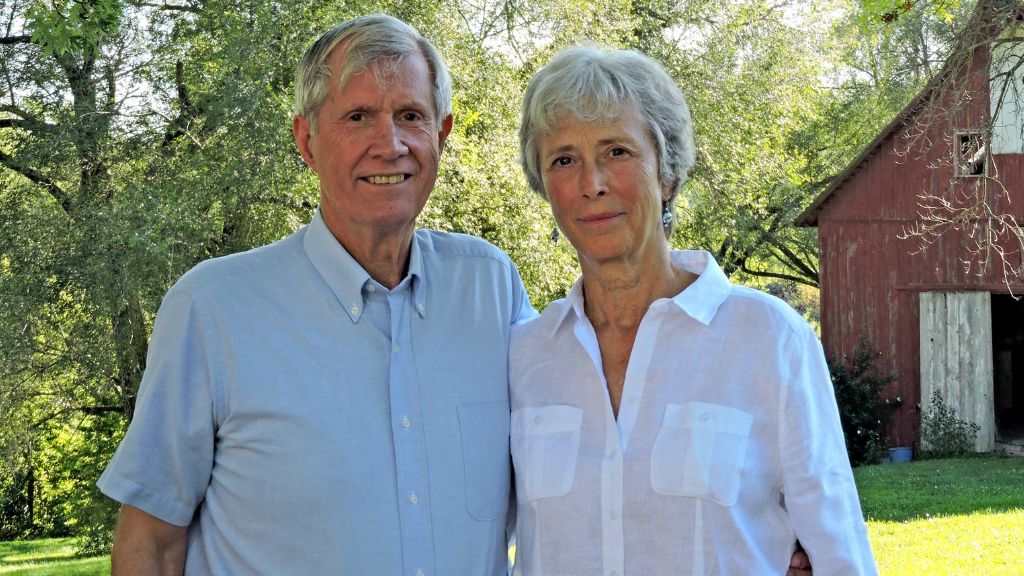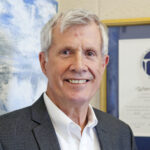Riding the Hertz “Magic Carpet”

During Dick Miles' tenure as a graduate student at Stanford University, his adviser, Professor Hubert Heffner, left to join the Nixon White House as deputy director of the Office of Science and Technology Policy. Before leaving, Heffner suggested Miles apply for the Hertz Fellowship.
After receiving the fellowship, Miles set his sights on working with Professor Steve Harris, a leader in the field of nonlinear optics. Switching advisors can present challenges to graduate students, and that’s where the Hertz Foundation stepped in.
“What inspired me to apply for a Hertz Fellowship was the freedom it gave me to select an adviser,” he explained. “Professor Harris was not looking for new students, and he took me because I came in with my own support and the Hertz Foundation stamp of approval. That turned out to be a tremendously powerful opportunity because the work that I did there was groundbreaking. It was a big change and tremendously welcome.”
At the time, Miles couldn’t foresee the lasting impact of the fellowship on his career. Today, as a university distinguished professor in the Department of Aerospace Engineering at Texas A&M, an emeritus professor and senior scholar at Princeton, and a member of the National Academy of Engineering, he credits the foundation’s support for opening doors he never thought would be available to him.
“I would characterize the Hertz Fellowship as a sort of a ‘magic carpet’ because you ride it past graduation,” Miles said. “The Hertz Fellowship has given me special entry to many professional opportunities, and it was an important factor in my invitation to join the faculty at Princeton.”
“Even after getting funding and establishing gravitas in a field, the fellowship provides an opportunity at the outset for young people to establish themselves to move in directions that they’re excited about. It carries them through their careers in ways that we probably don’t appreciate until we look back on it.”
Miles and his wife, Susan, a retired physician, established and renewed a named Hertz Fellowship to provide those same opportunities to the next generation of fellows. The current recipient of the Susan and Richard Miles Fellowship, Dolev Bluvstein, is a quantum physics student at Harvard University and is already reaping the benefits.
“In addition to work on my primary experiment, I am engaged in various extraneous collaborations,” Bluvstein said. “This is a key area where my Hertz Fellowship has been tremendously helpful, in working on whatever science I find important and interesting without being constrained by my funding sources. In the past year, these extraneous collaborations have resulted in three more publications.”
Dick and Susan share a common goal of trying to make the world a bit better through both philanthropy and volunteer service. Susan works with both the Native Plant Society and Audubon Society, while Dick has served with several professional societies, boards of directors and, of course, the Hertz Foundation as the founding chair of the fellowship and programs council, a member of the fellowship selection committee and as a board member since 1988.
“After a long career in health care, I’m now more concerned about the health of the planet,” said Susan Miles.
Dick is especially motivated to remain involved in the foundation and encourage others to participate. Since receiving a fellowship in 1969, he’s seen the foundation evolve with the addition of fellowship support for the biological sciences, the creation of the fellowship and programs council, and the growth of the community through retreats and workshops and dedicated professional development and collaboration programs for fellows.
“I owe a debt of gratitude to the Hertz Foundation,” he explained. “But equally important is the opportunity to bring outstanding people into the scientific community and give them tools to be most effective. The Hertz Foundation does that better than any other organization.”
Learn more about Dick Miles.
